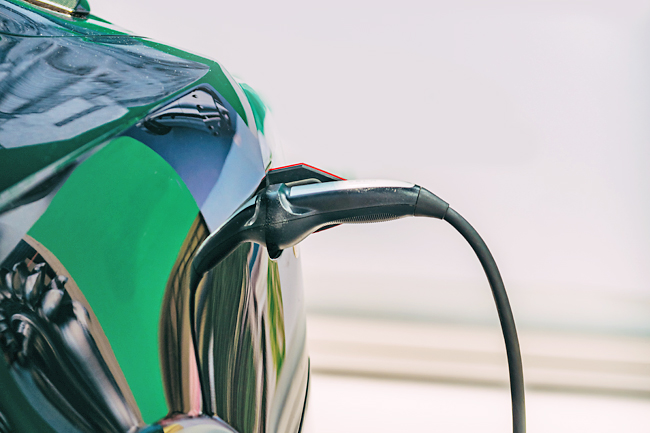PARIS (AFP) – A change at the top of European institutions could herald a change in the 2035 target to phase out sales of internal combustion engine cars even though the automotive industry is already well down the road towards transitioning to electric vehicles.
Following lengthy negotiations, European Union (EU) member states reached a historic agreement in 2022: from January 1, 2035 the only new cars that can be sold in the bloc are those with no tailpipe CO2 emissions.
Thus in slightly more than a decade there will be no more petrol and diesel cars in showrooms with sales limited to battery electric or hydrogen-powered vehicles.
Cancelling the 2035 deadline has become a rallying cry for Europe’s right-wing parties.
The European car industry is a major employer and a leader in traditional cars but is far behind Chinese upstarts in developing electric vehicles, particularly at low prices.
The ECR parliamentary group, which includes the Brothers of Italy and Spain’s VOX, still denies the need to move to electric vehicles.

“We stand firm in our belief that the internal combustion engine, a testament to the power of European creativity and ingenuity, can remain commercially viable for years to come by embracing cutting-edge technology and investing in ground-breaking research on alternative low-emission fuels,” its election manifesto reads.
The other right-wing group in the European Parliament, Identity and Democracy that includes the RN in France and AfD in Germany, has taken aim at expensive electric vehicles hurting consumers, calling the impending ban a discriminatory and socially excluding measure.
The outgoing majority party, the centre-right European People’s Party, is divided. The two German parties in the group, the CDU and CSU, want to scrap the 2035 deadline to continue to benefit from “state-of-the-art German internal combustion engine technology”.
That didn’t make it into the EPP manifesto because it was the head of their list, outgoing Commission chief Ursula von der Leyen, who negotiated the deadline as part of the EU “Green Deal”.
“It would be surprising if the Commission that put into place the Green Deal backtracked on it, but there are risks on its implementation,” said Diane Strauss at the NGO Transport and Environment.
The automobile industry, which employs 12 million people in Europe, is well on its way in shifting to electric vehicles.
The number of fully electric models available has increased and their share of the market has climbed to around 13 per cent at the end of last year, even if growth has flagged slightly.
But the head of the European car lobby group ACEA, Renault CEO Luca de Meo, recently indicated a delay would be welcome.
“I hope the ban will come into force a bit later because I think we won’t be able to do it without damaging all of the European auto industry and value chain,” he told AFP in February.






